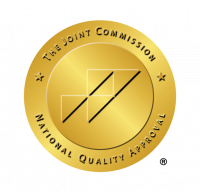Long-term recovery from alcohol use disorder often means learning an array of new coping techniques, and some practices are especially vital. Finding effective ways to manage negative thoughts and emotions is one of the best ways to get a handle on your drinking triggers, and maintain your progress over time.
Below, we’ll discuss negative emotions, their relationship to recovery, and some tips to help you manage them in a healthy manner.
Negative Emotions In Recovery

Everyone experiences negative feelings from time to time, but challenging thoughts and emotions can be especially problematic when recovering from alcohol use disorder (AUD).
Anger, sadness, guilt, shame, feeling unappreciated, feeling frustrated: All are common experiences in recovery, and all can be strong triggers to drink. Each can also be exacerbated by any slip-ups that occur in recovery, which can lead to a difficult cycle. It’s important to have effective ways of breaking this loop, or preventing it from starting in the first place.
There is a saying that we can’t control things that happen to us, but we can learn to control our reactions to those things, and how the resulting emotions are managed. The recovery process will be different for each person, and some strategies will work better than others, but here are some useful tips for managing negative emotions and thoughts as they come up.

Schedule a private call with a Ria Health team member and we can help you get started.
Tips For Managing Negative Thoughts and Emotions
1. Don’t try to suppress the emotions—allow them to happen.
Often, trying to suppress an emotion can actually cause more challenges, because that emotion or thought is not being actively managed. Keeping your emotions where you can see them, and learning to live with them, can give you a lot more agency.
2. Consider cognitive behavioral therapy (CBT).
This form of therapy, which helps people recognize and replace harmful thinking patterns, can be especially useful in recovery from AUD, since drinking triggers and negative thoughts are often linked together.
3. Find consistent, positive support.
Having at least one healthy, positive support person in your life is vital to success, even if it just means having someone you can vent to.
4. Practice consistent self-care and healthy habits.
The more you practice healthy self-care, the better you’ll be able to handle “whatever life throws at you”—and the resulting thoughts and emotions that arise. Think of self-care as preparing your mind and body for when inevitable stressful situations occur.
5. Manage underlying mental health challenges.
Trying to manage AUD and not managing challenges such as anxiety, depression, PTSD, etc. can be like trying to place a band aid on a severed limb. The better you care for any underlying mental health challenges, the easier it will be to manage AUD.
6. Identify emotions and thoughts that are challenging for you, personally.
Identifying the thoughts and emotions that are most difficult for you creates the opportunity to learn which habits and strategies work best in response. Similarly to alcohol cravings, most thoughts and emotions will subside after a few minutes or more of a healthy distraction. Develop a plan for when certain feelings arise, and stick with it.
Closing Thoughts
Remember that the goal is not to totally eliminate all negative thoughts or emotions, but to be able to minimize their effect on your recovery. This may seem intimidating at first, but it can happen over time with practice and commitment to wellness.
If you’re struggling with negative emotions and thoughts in recovery, you’re certainly not alone, and it never hurts to look for some help. Finding a therapist you trust can be very useful. And if you’re looking for support for AUD more generally, Ria’s program offers weekly online coaching meetings to help you learn strategies for managing difficult emotions and other common triggers. Get in touch with us today to find out how our coaching team can help.




